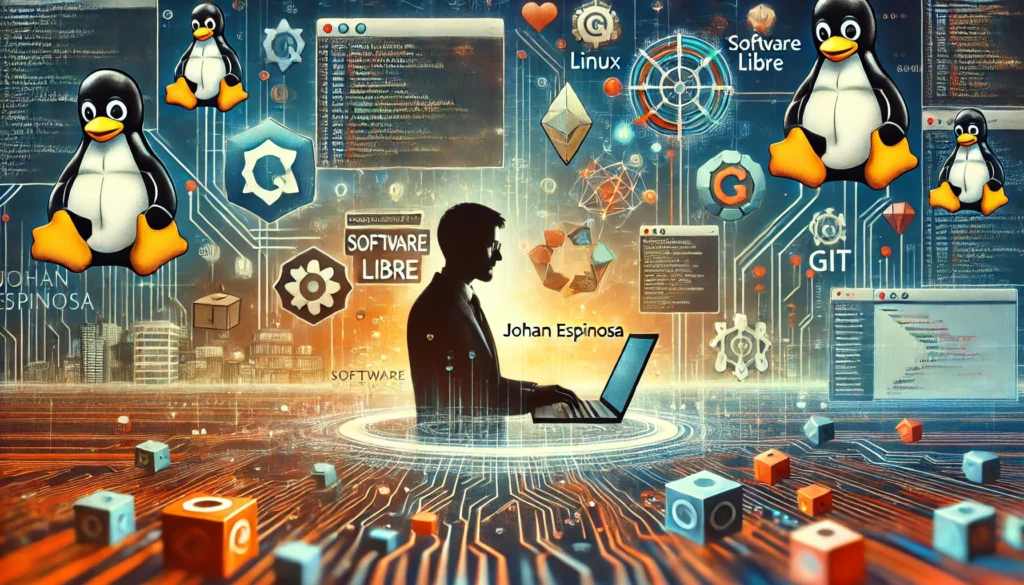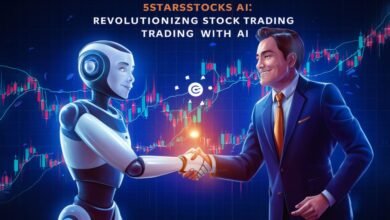Contents
Table of Contents
Introduction to Free Software
Johan Espinosa Software Libre In the modern era of technology, the concept of free software has gained immense traction. Free software is not just about the absence of cost; it embodies a philosophy that promotes user freedom and community collaboration. At the forefront of this movement is Johan Espinosa, a passionate advocate for open-source software and a key figure in the free software community. This article delves into Johan Espinosa’s journey, contributions, and the broader implications of free software in today’s digital landscape.
The Philosophy of Free Software
What is Free Software?
Free software refers to software that grants users the freedom to run, study, modify, and distribute it. The term “free” denotes liberty rather than price, aligning closely with the ethical principles of sharing knowledge and fostering community collaboration. The Free Software Foundation (FSF), established by Richard Stallman, defines free software based on four essential freedoms:
- The Freedom to Run the Program: Users can use the software for any purpose.
- The Freedom to Study and Modify the Program: Access to the source code is crucial for this freedom.
- The Freedom to Distribute Copies: Users can share the software with others.
- The Freedom to Distribute Modified Versions: This allows users to improve the software and share those improvements.
The Importance of Free Software
Free software is vital for several reasons:
- User Control: It empowers users to have complete control over the software they use, ensuring privacy and security.
- Community Collaboration: Free software promotes collaboration among developers, leading to rapid innovation and improvement.
- Accessibility: It allows individuals and organizations, especially those in developing countries, to access software without financial barriers.
- Long-Term Sustainability: Free software projects can thrive over time as communities rally around them, ensuring their continued development and support.
Johan Espinosa: A Brief Biography
Early Life and Education
Johan Espinosa was born and raised in a small town where access to technology was limited. His interest in computers sparked at a young age when he discovered the potential of programming and software development. Espinosa pursued a degree in Computer Science, where he was introduced to the principles of open-source and free software.
Discovering Free Software
During his university years, Espinosa stumbled upon the free software movement through online forums and communities. He was captivated by the idea of software that could be freely shared and modified. This discovery transformed his understanding of technology and its potential for social change. Espinosa began participating in local free software groups and contributing to various open-source projects.
Contributions to the Free Software Movement
Software Development
Johan Espinosa has made significant contributions to numerous open-source projects. His work primarily focuses on developing software that enhances user experience and accessibility. Some of his notable projects include:
- LibreTools: A suite of applications designed to improve the usability of free software for everyday users. This project emphasizes user-friendly interfaces and extensive documentation.
- OpenLearning: An educational platform that provides free resources for learners around the world. OpenLearning aims to democratize education by offering high-quality content without financial constraints.
Advocacy and Community Building
Beyond software development, Espinosa is an ardent advocate for free software. He has organized and participated in various conferences, workshops, and events to promote the benefits of open-source software. His efforts include:
- Workshops: Conducting workshops in schools and universities to educate students about free software and its advantages. These sessions often include hands-on experience with popular open-source tools.
- Public Speaking: Speaking at international conferences, Espinosa shares his insights and experiences in the free software community. His engaging talks inspire others to get involved and contribute to the movement.
Collaboration with Organizations
Espinosa collaborates with various organizations dedicated to promoting free software. His partnerships have led to initiatives that advocate for digital rights, privacy, and the importance of open-source solutions in various sectors, including education, healthcare, and government.
The Impact of Johan Espinosa’s Work
Empowering Communities
One of the most significant impacts of Espinosa’s work is the empowerment of communities through access to technology. By promoting free software, he has helped individuals and organizations leverage technology without the burden of costly licenses. This accessibility has enabled marginalized communities to benefit from digital tools that were previously out of reach.

Inspiring the Next Generation
Espinosa’s commitment to education and advocacy inspires a new generation of developers and users. Through his workshops and public speaking engagements, he instills a sense of responsibility in young people to contribute to the free software movement. His efforts have cultivated a community of passionate individuals dedicated to continuing the work he started.
Fostering Innovation
By contributing to various open-source projects, Espinosa has played a vital role in fostering innovation within the tech community. His projects have inspired other developers to create new tools and resources, pushing the boundaries of what is possible with free software. The collaborative nature of open-source development encourages experimentation and creativity, leading to innovative solutions to complex problems.
The Broader Implications of Free Software
Economic Impact
The rise of free software has significant economic implications. Businesses and organizations can leverage open-source solutions to reduce costs and enhance productivity. By adopting free software, companies can save on licensing fees and redirect those resources toward innovation and growth. Additionally, the open-source model fosters a competitive environment that drives down prices and increases options for consumers.
Societal Impact
Free software plays a crucial role in promoting digital rights and freedom. In an age where privacy concerns are rampant, the ability to use software that respects user rights is essential. By supporting free software, individuals can protect their data and maintain control over their digital lives. Moreover, the principles of collaboration and sharing inherent in free software contribute to building stronger, more resilient communities.
Political Implications
The free software movement intersects with broader political issues, including net neutrality and digital sovereignty. Advocates like Espinosa emphasize the importance of ensuring that software remains accessible and free from corporate control. By championing open-source solutions, they advocate for a more equitable digital landscape where individuals have a voice and influence over the tools they use.
Conclusion
Johan espinosa software libre journey in the free software movement exemplifies the power of technology to foster positive change. Through his software development, advocacy, and community-building efforts, he has made significant contributions that empower individuals and communities alike. The principles of free software resonate with values of collaboration, accessibility, and user freedom, making it an essential part of the digital age.
As we continue to navigate an increasingly complex technological landscape, the work of advocates like Johan Espinosa reminds us of the importance of preserving our digital rights and promoting open-source solutions. The future of software development and technology lies in our ability to collaborate, share, and innovate collectively.
Frequently Asked Questions (FAQ)
What is free software?
Free software refers to software that grants users the freedom to run, study, modify, and distribute it. The term “free” emphasizes liberty rather than price.
Who is Johan Espinosa?
Johan Espinosa is a software developer and advocate for free software, known for his contributions to open-source projects and community building efforts in the tech industry.
Why is free software important?
Free software is important because it empowers users with control over their digital tools, fosters innovation through collaboration, and ensures accessibility for individuals and organizations regardless of financial resources.
How does free software impact education?
Free software democratizes access to educational resources, allowing learners to access high-quality materials without financial constraints. It also provides opportunities for students to engage in real-world software development projects.
What are some popular free software projects?
Some popular free software projects include the GNU Operating System, LibreOffice, GIMP, and the Linux kernel. These projects exemplify the principles of collaboration and user freedom inherent in the free software movement.
![Middle-aged-senior-old-couple[1]](https://usaupnetwork.com/wp-content/uploads/2024/11/Middle-aged-senior-old-couple1-390x220.jpg)



